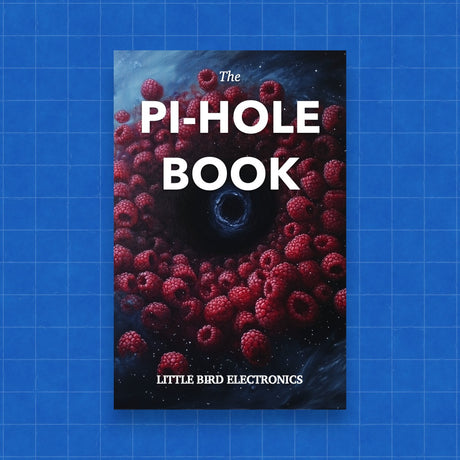30mm Dots - 12V Digital RGB LED Pixels (Strand of 20) [WS2801]
30mm Dots - 12V Digital RGB LED Pixels (Strand of 20) [WS2801] is backordered and will ship as soon as it is back in stock.
Couldn't load pickup availability

Call us on 1300 240 817 between 10 AM and 4 PM on weekdays or email team@littlebird.com.au .
The Fastest Shipping
The Fastest Shipping
We ship faster because we built our own shipping 🤖 robot.
Pi Australia is operated by Little Bird, and we go to great lengths to ship your orders, often within minutes.
You can view shipping options and pricing at checkout without logging in.
For orders over 500g (such as bulky items), shipping may cost more than the initial estimate.
We deliver across Australia, and here are the options (based on your location; view them on the cart page):
- Standard Post: Starting at $7 (6+ business days, with tracking)
- Express Post: Starting at $11 (2+ business days, with tracking)
- Same Day Delivery: Available for Sydney orders.
- Non-metro WA, NT, SA, and TAS: May take an additional 2+ days.

The pixels are connected by a 4-conductor cable. +12VDC, ground, data and clock. Data is shifted down from one pixel to the next so that you can easily cut the strand or attach more onto the end.
Each dot is digitally controlled, with an internal 8-bit PWM LED driver (24-bit color for 16 million different shades). The pixels must be clocked by a microcontroller, we have an example code linked below that works on an Arduino, it should be simple to adapt it to any other microcontroller.
The pixels use 3 x 5050 RGB LEDs, and the dot has full 180 degree color spread due to to the translucent nature. All of the LEDs are controlled at once so you cannot have one pixel with the three LEDs different colors. (Color control is per single dot 3-LED pixel only) The total max brightness of all LEDs is about 4000mcd. (Please note: mcd ratings of LEDs are notoriously inflated by most LED sellers, so be extra-skeptical when reviewing LED ratings!)
Sold by the strand, each strand has 20 pixels in series! Each strand has two JST SM 3-pin connectors so you can connect multiple strands in a row, as many as you wish, just watch for how much current they want. The two power wires are brought out separately to make wiring easier, a 2.1mm terminal block adapter is handy here to attach a DC power supply. We have a 12V/5A supply that should be able to drive 2 or more strands (depending on current use). The LEDs are constant-current driven so you'll have even colors through-out the strand as long as you have a stable 12V supply
You can drive these with an Arduino using any two microcontroller digital pins, check this library which also has example code to demonstrate the strands and be sure to read our very detailed tutorial on usage!. Since these are nearly identical in how they work to t he 36mm pixels, that guide will get you blinking
Payment & Security
Payment methods
Your payment information is processed securely. We do not store credit card details nor have access to your credit card information.
![30mm Dots - 12V Digital RGB LED Pixels (Strand of 20) [WS2801]](http://raspberry.piaustralia.com.au/cdn/shop/products/image_60b21324-bd3f-4b23-8cea-e006371d0381.jpg?v=1699415195&width=1214)
![30mm Dots - 12V Digital RGB LED Pixels (Strand of 20) [WS2801]](http://raspberry.piaustralia.com.au/cdn/shop/products/image_60b21324-bd3f-4b23-8cea-e006371d0381.jpg?v=1699415195&width=1500)
![30mm Dots - 12V Digital RGB LED Pixels (Strand of 20) [WS2801]](http://raspberry.piaustralia.com.au/cdn/shop/products/image_3277f721-31c3-4c39-8891-bf4eae1ed6fb.jpg?v=1699415195&width=1214)
![30mm Dots - 12V Digital RGB LED Pixels (Strand of 20) [WS2801]](http://raspberry.piaustralia.com.au/cdn/shop/products/image_3277f721-31c3-4c39-8891-bf4eae1ed6fb.jpg?v=1699415195&width=1500)
![30mm Dots - 12V Digital RGB LED Pixels (Strand of 20) [WS2801]](http://raspberry.piaustralia.com.au/cdn/shop/products/image_57fbf39e-9455-420c-bfa5-bd767d1a98c8.jpg?v=1699415195&width=1214)
![30mm Dots - 12V Digital RGB LED Pixels (Strand of 20) [WS2801]](http://raspberry.piaustralia.com.au/cdn/shop/products/image_57fbf39e-9455-420c-bfa5-bd767d1a98c8.jpg?v=1699415195&width=1500)
![30mm Dots - 12V Digital RGB LED Pixels (Strand of 20) [WS2801]](http://raspberry.piaustralia.com.au/cdn/shop/products/image_6d1ebd51-6e93-4273-9832-f0b125b75da3.jpg?v=1699415195&width=1214)
![30mm Dots - 12V Digital RGB LED Pixels (Strand of 20) [WS2801]](http://raspberry.piaustralia.com.au/cdn/shop/products/image_6d1ebd51-6e93-4273-9832-f0b125b75da3.jpg?v=1699415195&width=1500)

